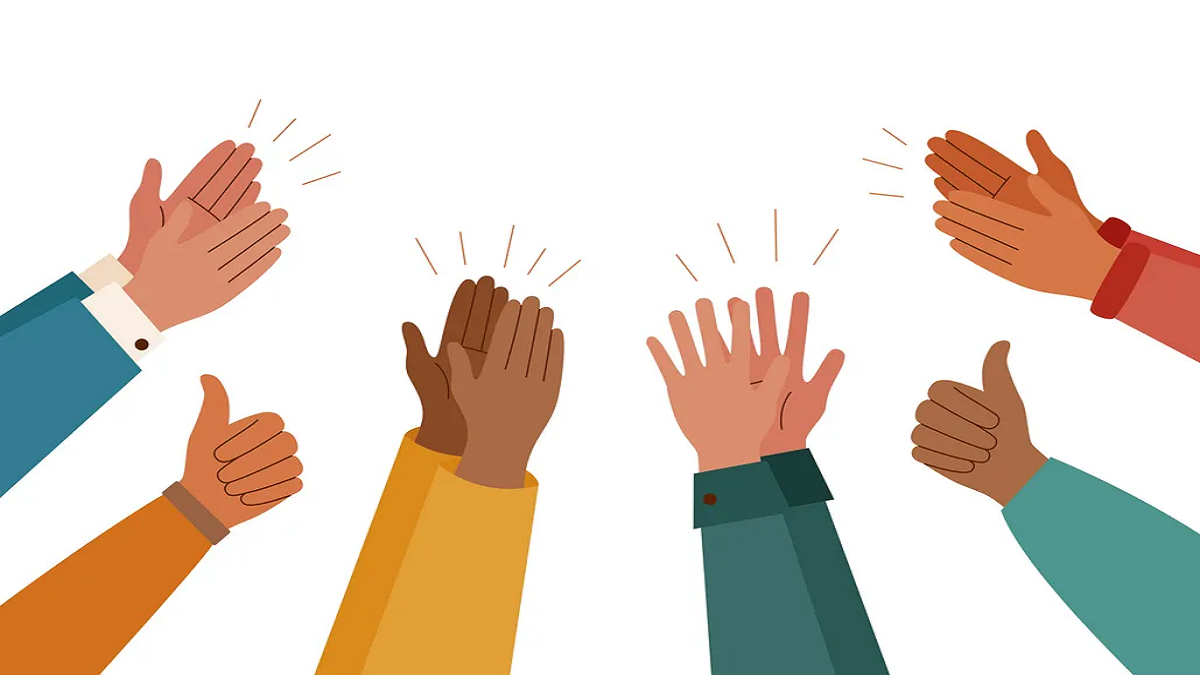This guide will discuss the importance of mastering the art of how to respond to a compliment and how it can improve social and professional interactions. Receiving and responding to compliments is a fundamental part of human interaction, influencing relationships and communication. One’s personal and professional image can be elevated by knowing how to acknowledge a compliment with professionalism.
Receiving a compliment at work can be a pleasant surprise, but many people struggle with how to respond appropriately. Whether it’s praise for your performance on a project, your teamwork, or your ability to handle challenges, knowing how to respond can enhance your professional relationships and boost your confidence. Here are some effective ways to respond to compliments in a workplace setting.
Tips For Responding To Compliment At Work

1. Express Gratitude
One of the simplest and most effective answers to how to respond to a compliment is to express gratitude. A straightforward “Thank you” conveys appreciation and acknowledges the other person’s kindness. You can enhance this response by being specific about what you are thankful for.
Example:
Compliment: “You did an amazing job on that presentation!”
Response: “Thank you! I really appreciate that you noticed the effort I put into it. It means a lot to me.”
Why It Works:
Expressing gratitude is a universal response that fosters goodwill. It shows humility and an appreciation for the recognition, making the complimenter feel valued as well.
2. Share the Credit
In many workplaces, success is often a team effort. If the compliment relates to a group project or teamwork, consider sharing the credit with your colleagues. This not only shows your humility but also strengthens team dynamics.
Example:
Compliment: “You really led the team well during that project.”
Response: “Thank you! It was a true team effort, and I couldn’t have done it without everyone’s hard work and support.”
Why It Works:
Sharing credit promotes a collaborative environment and demonstrates that you value the contributions of others. It also positions you as a team player, enhancing your reputation within the organization.
3. Acknowledge the Specifics
When someone compliments you on a specific aspect of your work, acknowledging that specific element can deepen the connection and is one of the ways to respond to a compliment. This shows that you are engaged and attentive to what they are saying.
Example:
Compliment: “Your analysis in the report was very insightful.”
Response: “Thank you! I spent a lot of time reviewing the data, so I’m glad you found it insightful. I enjoyed digging into those numbers.”
Why It Works:
By acknowledging the specifics, you demonstrate active listening and reinforce the validity of the compliment. It shows that you take pride in your work and that you value feedback.
4. Keep it Humble
While it’s great to accept compliments, maintaining a level of humility can make your response more relatable. Avoid sounding overly confident or dismissive; instead, express a balance of appreciation and modesty.
Example:
Compliment: “You have a great knack for solving problems quickly.”
Response: “Thank you! I try my best, but I still have a lot to learn. I appreciate your support!”
Why It Works:
A humble response can make you more approachable and relatable. It shows that you recognize your ongoing development and value the perspectives of others.
5. Reciprocate the Compliment
If you genuinely feel that you can compliment the person who complimented you, do so as an answer to how to respond to a compliment! A well-placed compliment can strengthen relationships and create a positive atmosphere.
Example:
Compliment: “You really handled that client call well.”
Response: “Thank you! I appreciate that coming from you, especially since I always learn so much from how you manage your clients.”
Why It Works:
Reciprocating a compliment fosters a sense of camaraderie and encourages a culture of appreciation within the workplace. It also highlights mutual respect and admiration.
6. Use Humor Appropriately
If it is your personality and the workplace culture, using light humor can be an effective way to respond to a compliment. Humor can diffuse any awkwardness and make the interaction more enjoyable.
Example:
Compliment: “You really nailed that project!”
Response: “Thanks! I’m just glad the coffee was strong enough to get me through it!”
Why It Works:
Humor can create a relaxed environment, making conversations more enjoyable. However, it’s important to gauge the appropriateness of humor based on your relationship with the person and the workplace culture.
7. Ask for Feedback
If you’re open to constructive criticism, responding to a compliment with a request for feedback can be a smart move and one of the ways to respond to a compliment. This shows that you’re committed to continuous improvement and value the other person’s perspective.
Example:
Compliment: “You have a great way of presenting information clearly.”
Response: “Thank you! I really appreciate that. If you have any suggestions for improvement, I’d love to hear them.”
Why It Works:
Asking for feedback demonstrates your commitment to professional growth. It also encourages open communication and shows that you value the input of your colleagues.
8. Follow Up Later
Sometimes, a compliment may catch you off guard, making it difficult to respond in the moment. If that happens, consider following up later to express your appreciation. This can be done in person, through a quick email, or a message.
Example:
Compliment: “You really helped us meet our deadline!” (in a meeting)
Response: (Later) “Hey, I just wanted to thank you for your kind words during the meeting. It was a great team effort!”
Why It Works:
Following up shows that you value the compliment enough to revisit it, reinforcing the positive interaction. It also gives you a chance to respond thoughtfully rather than feeling rushed in the moment.
Wrapping Up
Answers to how to respond to a compliment at work don’t have to be daunting. By employing these eight strategies, you can turn a simple acknowledgment into an opportunity for deeper connections and a more positive workplace atmosphere.
Remember, how you respond can leave a lasting impression, so choose your words wisely and stay true to your personality. Embrace compliments as part of your professional growth, and let them enhance your relationships and contributions within your workplace.
In conclusion, developing the professional art of accepting a compliment is an important ability that may enhance both personal and professional relationships. One may improve relationships, cultivate deep connections, and leave a great impression by accepting praises with grace, appreciation, and genuineness.
FAQ
Q: When I get the praise that surprises me, how should I react?
A: In these kinds of circumstances, acknowledging the pleasant comment and expressing sincere thanks are both appropriate. A straightforward “Thank you, that means a lot” will take care of the praise well.
Q: Is it proper to thank someone who has complimented you?
A: Returning the favor when praise is sincere might help the goodwill exchange. However, it is crucial to make sure that the reply is genuine and pertinent.
Q: What happens if I disagree with the praise that I’ve been given?
A: It’s important to reply politely and refrain from downplaying the good attitude, even if you don’t believe the praise is warranted. Sincerely appreciate the appreciation.











